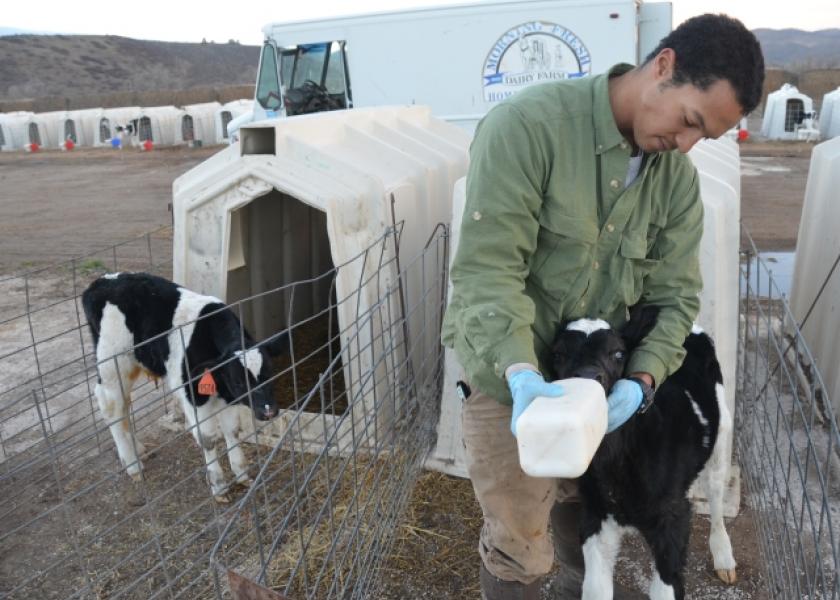Bottle Beats the Bucket in Providing Winter Water

Calves need supplemental water early in life to support hydration, health, starter grain consumption, rumen development, and growth.
Simply feeding milk or milk replacer isn’t enough to optimize these performance factors. Although calves do consume water in their milk rations, the esophageal groove on the side of the rumen wall diverts those feedings directly into the abomasum.
The rumen needs a separate source of pure water to feed the fermentation process that promotes rumen development.
But delivering free-choice water to calves in frigid temperatures is easier said than done. Some farms suspend water feeding in the harshest part of winter and resume again in the spring. Taking the winter “off” bypasses the challenges of dealing with short intake windows, frozen pails, and ice accumulation around calf-rearing areas. But it creates a trade-off for the calves raised in those winter windows.
Researchers at Provimi North America’s Nurture Research Center near Brookville, Ohio may have come upon a fairly simple solution to these challenges. Their suggestion: feed the water with a bottle instead of a bucket.
In a wintertime study of 48 Holstein male calves, half were provided water via pails, at a temperature that matched environmental conditions. The other half was offered 3 quarts of very warm (~100°F) water via nipple bottle for 1 hour, starting at noon daily.
Milk replacer ration, starter grain feeding, housing, and bedding were identical for both groups. At 5 weeks of age, bottles were discontinued, and free-choice bucket water feeding was instituted for all calves.
During the 5-week comparison period, bottle drinkers consumed an average of 1.4 quarts of water per day, compared to 0.2 quarts for the bucket group.
Starter grain consumption up to 42 days, when all calves were weaned, didn’t vary much between the two groups. But it kicked into gear rapidly for the bottle drinkers after weaning, so that by 56 days of age, that group had eaten a total of 10 pounds per head more.
Based on their findings, Provimi dairy calf researcher Tana Dennis offered this advice for bottle-feeding water in cold conditions:
- Provide water via nipple bottle at a temperature close to rumen/body temperature: 100-105°F.
- Offer water at least 15-20 minutes after milk feeding to ensure the esophageal groove is closed and the water goes into the rumen.
- Feeding at least 2 quarts of water in this fashion daily will allow for an additional half to full pound of daily starter grain to be digested each day.







